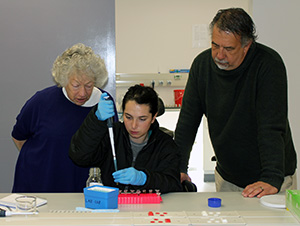Latest News Archive
Please select Category, Year, and then Month to display items
24 August 2021
|
Story Amanda Tongha
![]()
In a year marked by a global pandemic, the University of the Free State (UFS) has made great strides in research, teaching, and impactful engagement.
Our 2020 journey has seen many staff members providing services to advance public knowledge of COVID-19 for the greater good of South Africa. We have produced top-rated scientists, boasting six SARChI research chairs and three A-rated scholars in our world-class workforce. Our various initiatives to ensure student success continue to bear fruit, with current and former students making their mark in the world. One such example is Qinisani Qwabe, a PhD student in the Centre for Sustainable Agriculture, Rural Development and Extension, who was selected in the education category of the Mail & Guardian Top 200 Young South Africans. He was also chosen to represent South Africa at a BRICS conference in Russia.
You can read these and other facts and figures in ‘Our 2020 Journey’ publication.
Click on image to download the document

Monkey research attracts international attention
2016-07-11

Prof Trudy Turner from the University of
Wisconsin-Milwaukee and Prof Paul Grobler
from the Department of Genetics at the
University of the Free State, together with one
of the students researching monkey genes.
Photo: Siobhan Canavan
For this year’s Summer School programme, Prof Paul Grobler, from the University of the Free State Department of Genetics focuses on research about the conflict between monkeys and humans in areas where monkeys are regarded as problem animals.
Global expert part of research
This year, Prof Grobler is hosting a group of students and lecturers from the United States of America (USA). The group includes Prof Trudy Turner from the University of Wisconsin-Milwaukee (UWM), a global expert on vervet monkeys. She has been working with the Department of Genetics at the UFS for the past fifteen years, and has also been appointed as an Affiliated Professor in the department.
“The Summer School programme is an opportunity for the American Primatology students to gain practical experience in Africa,” says Prof Grobler.
International interest in Summer School
This year’s Summer School programme involves four lecturers and nine students. The lecturers are from the University of Wisconsin-Milwaukee (UWM), the University of California, Los Angeles (UCLA), Boston University, and Central Washington University.
“We use the genetic information to determine
how monkeys historically infiltrated the
different areas in South Africa.”
This year’s focus is on the genetic structure of the monkeys in South Africa, and research that is being done on the differences and similarities in monkeys from different areas. “We use the genetic information to determine how monkeys historically infiltrated the different areas in South Africa,” says Prof Grobler.
Local nature reserve acting as host
The group will perform field work, including observing monkeys in the Soetdoring Nature Reserve, as well as laboratory work in the department, where they will be assisted by two laboratory technicians.
Two years ago, Prof Grobler and his department tested this idea on a smaller scale, and now they hope to make this a regular event.